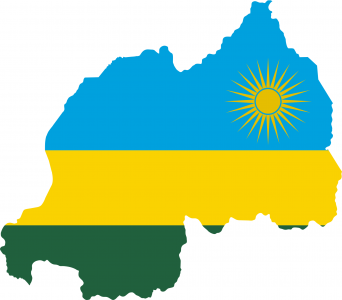Description

Processing: Natural; SCA Score: 85 pts
Fruity taste with exotic notes of tamarind, watermelon, nuts, berries, floral and alcoholic nuances, pronounced sweetness, full body, and a long-lasting aftertaste
A New Chapter on the Shores of Lake Kivu
On the forested hills of Rwanda’s western province, nestled near the tranquil shores of Lake Kivu, the Cyesha coffee washing station marks a new chapter in the rise of Rwanda’s specialty coffee scene. Located in the Nyamasheke district, the station operates in the Macuba sector—a region known for its biodiversity and altitudes ranging from 1,450 to 1,750 meters. Since its establishment in 2022, Cyesha has become a vibrant outpost in Rwanda’s specialty coffee landscape, harnessing the natural terroir and community spirit to produce coffees of remarkable quality.
The Journey Behind Muraho
Cyesha is operated by Muraho, founded by brothers Karthick and Gaudam Anbalagan. Raised in Uganda and educated in New Zealand, their journey is one of reconnection and renewal. Driven by a passion for their homeland and a love for specialty coffee discovered abroad, the Anbalagan brothers returned to Rwanda with a vision: to elevate Rwandan coffee to global recognition. Muraho has become a pioneer of innovation in coffee processing in Rwanda, and Cyesha Station is the latest expression of that ambition.
“When we started, Rwandan coffee wasn’t on people’s radar in terms of specialty—in fact, everyone talked about potato taste and inconsistent quality when referring to coffees from Rwanda. Muraho was literally the first company in Rwanda to apply for an export license for natural and honey-processed coffees back in 2016. So one of the things that amazes us most is how far our team and the farmers we work with have come in demonstrating potential, introducing new processes, and improving more complex flavor profiles—and how well this has been received by our buyers,” said Gaudam during our interview.
How Cyesha Coffees Are Produced
The station works with approximately 470 smallholder farmers who deliver cherries during the harvest season, from March to May. Cyesha handles fully washed, honey, and natural processing, supported by Penagos Ecoline pulp processing equipment, dual water tanks, and 54 raised drying beds. The microclimate—cool lake winds, consistent rainfall, and abundant sunlight—creates ideal conditions for slow and even drying of natural coffees.
Farming on Sandy Soils
Notably, the soils surrounding Cyesha are sandy and rocky, which challenge water retention but also shape unique agricultural practices. Coffee remains the primary source of income, with limited alternatives beyond tomatoes or small-scale fishing. To mitigate the stress of the dry season, farmers plant banana trees, which act as natural water reservoirs and provide both shade and food.









